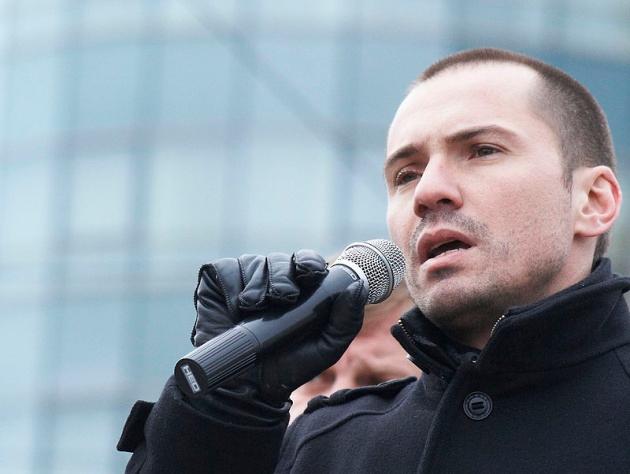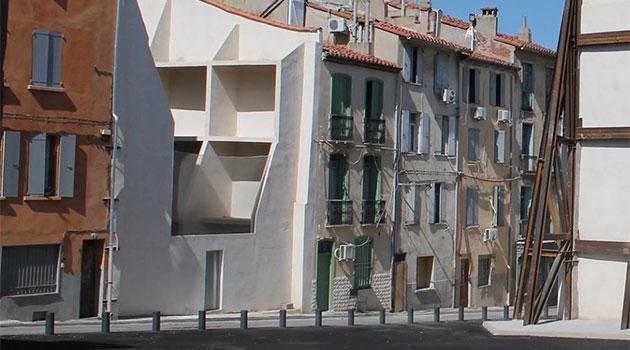Bulgarian officials exploiting fear of COVID-19 to discriminate against Roma

Reuters reports that Bulgarian governing populists from the ultra-right are exploiting the current crisis in human health and politics to secure support for their policies. One such group is the extreme-right IMRO – Bulgarian National Movement (VMRO – Bulgarsko Natsionalno Dvizhenie) party, which sparked a wave of outrage in Bulgaria from pro-Romani activists and Romani people last year when it proposed an anti-Romani policy as part of the Government’s concept for Romani integration.
That movement is a member of an alliance called United Patriots, three populist, ultra-conservative parties that comprise the governing coalition in Bulgaria along with the pro-EU Citizens for European Development party. While a document produced by the movement called “Concept against Ciganization” purported to use the concept of integration, the real aim of its measures is rather the assimilation of the Romani minority.
Bulgaria, like many other countries of the post-communist bloc, is now resorting to earlier political practices and striving to control the Romani population, and this concept presents Romani people as a security threat to society and is thus a launching pad for the governing parties’ autocratic ambitions, nationalism and racism. Thanks to activist protests at the international level, however, the concept has yet to be adopted by the Government.
Roma as a security risk
MEP Angel Dzhambazki is a member of the Bulgarian National Movement who has been betting on fear of COVID-19 infection and ingrained anti-Romani attitudes in his own politics. By arguing that Romani ghettos and neighborhoods pose a security risk, he is managing to gain support for enforcement of the principles of the proposed anti-Romani concept in practice now.
On the basis of Dzhambazki’s proposed preventive measures against the spread of COVID-19, mayors in Bulgaria have begun to close Romani ghettos and set up checkpoints at their entrances. This measure is selectively restricting freedom of movement on the basis of the ethnicity of the inhabitants and is creating a dangerous precedent.
Strict curbs on movement between cities and to other countries, as well as the closure of restaurants and schools, have been introduced in recent weeks throughout Europe. However, in Bulgaria, towns with significant Romani populations like Kazanlak, Nova Zagora, Roman and Sliven have closed off the quarters inhabited by Roma and in some cases built temporary walls around them.
Those extreme measures have been defended by allegations that Romani people are not adhering to the emergency ban on assembly. The mayor of Nova Zagora, Nikolay Grozev, alleged that local Romani people were not respecting the ban on assembly and were moving around the town in large numbers.
Bulgarian Interior Minister Mladen Marinov further pointed out that the Government, if needed, will not hesitate to take even harsher measures against Romani residents. In association with Fakulteta, the biggest Romani neighborhood in Sofia, he alleged that “using coercive means is justified in that case, as we are obliged to protect the rest of the population.”
Closing ghettos
The MEP is calling for ghettos inhabited by Romani people to be closed across the board. His arguments do not just point to their impoverishment and to the low level of personal hygiene possible in those localities, but also to allegations that many Bulgarian Roma have recently returned to the country from Italy and Spain, the countries with the highest number of confirmed cases of infection in Europe.
In Bulgaria, as of 28 March 2020, there are 313 confirmed cases in 20 out of 28 Bulgarian provinces, with 4 recorded deaths and 9 recoveries. In response to the increasing political extremism of the United Patriots group and the Government’s own discriminatory measures against Romani people, the civic democratic opposition sent an open letter to the European Parliament on 25 March calling on the MEPs to reject not just Dzhambazki’s political attitudes and steps, but those of the entire United Patriots alliance.
According to the 2011 census, there are 325 000 Romani people in Bulgaria, which has a total population of seven million, but the European Commission reports the actual number as 750 000 on the basis of more recent estimates. That higher number would mean that Romani people comprise 10 % of the population in Bulgaria.
Romani people in Bulgaria say the cause of these discriminatory measures is majority-society prejudice against them. Stela Kostova, the director of an NGO called Romani Academy of Culture and Education, is concerned about the consequences of these extreme measures for the Romani community.
Kostova said the closures of the ghettos are preventing Romani people from making a living. “There are people who make a living from collecting bottles and other objects from garbage cans. Now they are not allowed to do that,” she told Reuters.
